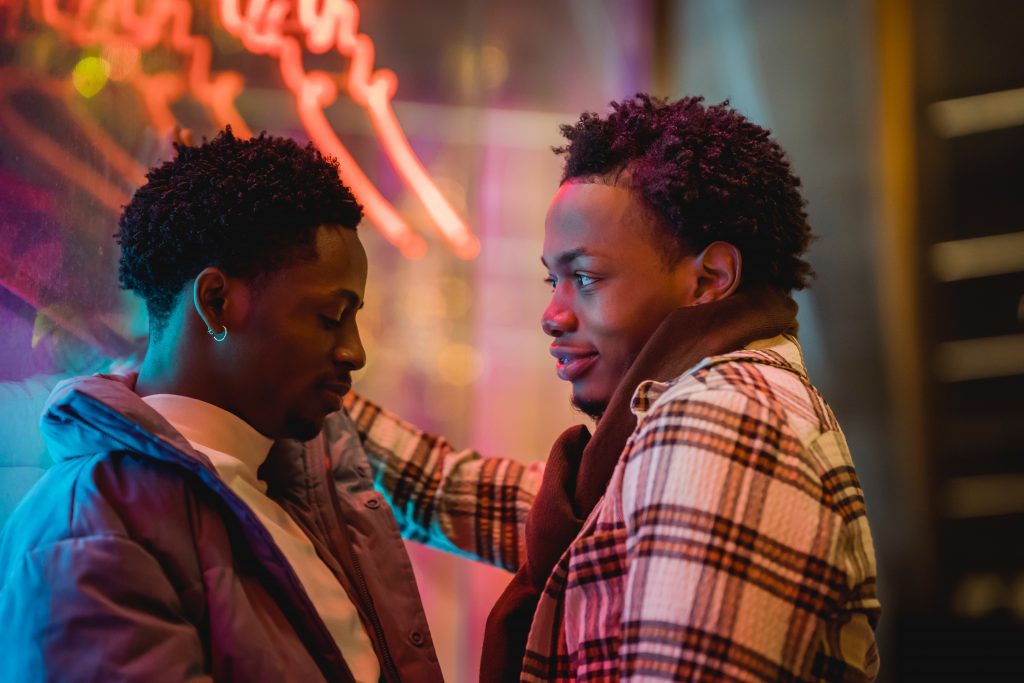By Marie Haaland // SWNS
NEWS COPY W/ VIDEO + INFOGRAPHIC
Two-thirds of LGBTQ+ Americans believe representation in media is “greatly lacking,” according to new research.
The survey of 2,000 LGBTQ+ Americans found that despite 62% believing we’ve made progress with representation, there's still a long way to go.
Even when there is representation, only a third of respondents (31%) said it was a “positive” portrayal when they first saw someone like them in the media.
For many, the negative aspects are enough to turn them away — 39% have stopped engaging with specific media because it plays into harmful stereotypes about the LGBTQ+ community.
Others have stopped watching a certain show or reading a book due to a lack of representation (23%), or because it used a trope like “bury your gays” (23%), in which LGBTQ+ characters are more likely to be killed.
Commissioned by Orbitz and conducted by OnePoll ahead of Pride month in June, the survey also explored the positives of representation and the importance of it.
Forty-seven percent of respondents said seeing themselves in media — on shows like “Steven Universe” (Cartoon Network) or “The Fosters” (ABC Family) — helped them to realize their own identity.
This also helped 63% become more comfortable in their identity.
Fifty-seven percent of respondents said seeing LGBTQ+ characters in media has not only benefited them, but it’s helped their loved ones better understand their experience.
Overall, 61% believe LGBTQ+ representation is important, while 54% said the same for intersectional representation.
“Now more than ever, diversity and authentic representation should be table stakes in our industry,” said Orbitz Brand Director Carey Malloy. “Orbitz was among the first travel brands to feature LGBTQIA travelers in its advertising in the early 2000s. Twenty years later, it’s clear that creators and brands must do more to facilitate a dialogue on representation that leads to meaningful change, not just simply calls to actions.”
The panel of LGBTQ+ respondents revealed, for many, there are times they feel the need to downplay their identity. The top situation was found to be a job interview, followed by meeting someone new and when traveling.
The survey delved further into travel and revealed a fifth “always” research a destination to see if it’s LGBTQ+ friendly before planning a trip.
And 58% agreed: LGBTQ+ travelers spend more time researching travel destinations and accommodations than cisgender or heterosexual travelers.
More than that, six in 10 respondents said they’ve canceled a trip or changed their travel plans due to feeling unsafe, as a result of their gender identity or sexual orientation.
But respondents aren’t letting that stop their travel plans. Forty-eight percent are planning to participate in Pride this year, and of those, 66% said their first big, post-COVID trip will be something to help them celebrate.
“Pride is typically one of the bigger travel moments of the summer. With in-person events still fluctuating as we navigate this new middle ground coming out of the pandemic, we’re seeing that many people are celebrating Pride locally now, then traveling somewhere new later in the year when hopefully parades will be back,” said Malloy.
FOR WHAT REASONS HAVE RESPONDENTS STOPPED ENGAGING WITH MEDIA?
- Playing into harmful stereotypes about the LGBTQ+ community 39%
- A lack of representation 23%
- Using tropes like “bury your gays” 23%
- A lack of intersectional representation 22%
- Villainizing LGBTQ+ characters 20%
- Creatives behind the media were not in support of the LGBTQ+ community 18%
- Having cis and/or het actors play LGBTQ+ characters onscreen 18%
